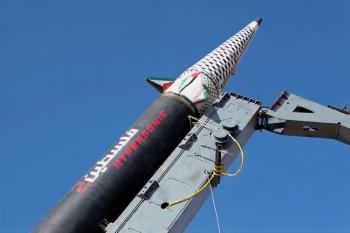Alwaght- In addition to the home troubles it has been grappling with over the past few years Libya now faces problems that are caused by actors out of its borders. One of the main challenges the North African nation is countering is the foreign players’ competition in this country that escalates the tensions and even results in war and bloodshed.
That is why we see stances taken by the regional and international countries. For example, since a couple of months ago, Turkey has been closely following the Turkish developments. Ankara has been serious in pursuing Libya’s developments to an extent that it deployed a warship to the Mediterranean Sea close to the Libyan territorial waters.
Deployment of the naval vessel did not go easy for the Turkish government. Libyan sources suggest that a couple of the crew of the ship were abducted by the forces of the Libyan National Army (LNA) which is commanded by General Khalifa Haftar, a remain of the former Libyan regime who now pushes against the internationally-recognized government in the country. Recently, the Turkish foreign ministry published a statement saying that six Turkish citizens were abducted by the forces operating under Haftar. They were released after Ankara warned to launch strikes on the Haftar-led militias, however.
It seems that now the main force countering the Turkish presence in Libya is the LNA. Over the past three years, Haftar seized much of eastern Libya as he in June 2018 launched a push to capture the capital Tripoli, the seat of the Government of National Accord (GNA) that has a considerable international backing. It was this operation towards the capital that triggered the Turkish decision to dispatch its naval vessel to the Libya waters.
But Turkey-Haftar confrontation is not all of the Libyan story. There is a proxy encounter underway in Libya. While Turkey voiced its support to the UN-recognized government in the country’s west, some countries like Saudi Arabia, the United Arab Emirates, and Egypt are backing the militias of Haftar in the east. So, the confrontation between Turkey and Haftar falls in a broader competition in which on the one side stands Ankara and the other side stands Riyadh-led Arab camp.
Turkey’s rivals are extremely worried about its deepening of influence in Libya and accuse the Turkish President Recept Tayyip Erdogan of pushing towards the revival of the Ottoman Empire in the region. Turkey accuses them of destabilizing the already war-ravaged nation by supporting the pro-power ambitions of Haftar while Libya over the past few years has been the destination to the Turkish products and huge investment.
Libya is significant for Turkey from a set of aspects. The country is in the center of North Africa and a neighbor to Egypt and Algeria. Ankara leaders are hopeful that through garnering a toehold in Libya through advocacy to the Tripoli-based administration they can watch the developments in both Egypt and Algeria. As it is clear, Turkey sustained damages to its interest and regional policies as a result of the military coup of 2013 led by Abdel Fattah el-Sisi in Egypt who is now the president there. Now, the Turkish strategists find a new way back to North Africa via Libya.
Supporting the Tripoli-based administration in the face of the Tobruk-based power seekers echoes the scenario applied to Syria. Now arming the Libyan government is reminiscent of the arming of the Syrian opposition by the weapons convoys arriving into Syria through Turkey. Erdogan himself ordered clearance of the arms-loaded trucks crossing the border into Syria under the supervision of the Turkish intelligence agency. Now, he is stepping up his arms support to the Tripoli administration. Sending arms to Libya will also help a fledgling Turkish arms industry. Reports suggest that this year Turkey’s arms exports grew 14 percent, signaling that the country will transform into a major arms supplier in the coming years.
Additionally, Libya has been of economic importance over the past few years. In addition to being an appropriate consumption market for the Turkish goods, Libya is hosting Turkey’s contractors within a broad business partnership.
Turkey sends Libya clothing, medicine, cement, steel, construction material, and other products and buys from it worth of $300 million a year oil, gold, and other metals. Furthermore, Turkey benefits from the Libyan tourists coming to visit its attractions. Figures show that between 150,000 and 200,000 Libyan tourists annually travel to Turkey.
So, Libya provides Turkey with a political and economic influence opportunity. Hit by back-to-back defeats in the regional policy including in the Syria and Egyptian cases, Erdogan and other ruling Justice and Development Party leaders cannot withstand another defeat this time in Libya. That is why they take pains to put the brakes on the advances of Haftar who is apparently a proxy actor playing for Saudi Arabia, the UAE, and Egypt.
Turkey’s sensitivity doubled particularly after President Omar al-Bashir of Sudan, a close ally to Ankara and assisting its pro-Muslim Brotherhood agenda in the region, was ousted from his three-decade rule by a military coup in April that followed popular protests calling him to step down amid accusations of corruption and authoritarianism. The Sudanese political situation is largely hazy and Erdogan does not want to fall behind in a fierce regional competition.
On the opposite side, Haftar’s military ambitions give the UAE and Saudi Arabia a big chance to easily block the Turkish way of influence in North Africa. For the Saudi-Egyptian-Emirati triangle, support to Haftar-led militias is a vital measure to check the Ankara’s push for a foothold in North Africa and mainly Libya.



























